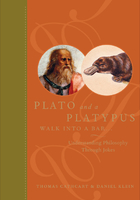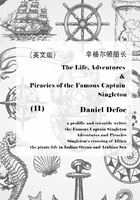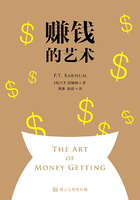"She has blown up!" cried Herbert.
"Yes! blown up, just as if Ayrton had set fire to the powder!" returned Pencroft, throwing into the lift together with Neb and the lad.
"But what has happened?" asked Gideon Spilett, quite stunned by this unexpected catastrophe. "Oh! this time, we shall know " answered the engineer quickly.
"What shall we know? "
"Later! later! Come, Spilett. The main point is that these pirates have been exterminated!"
And Cyrus Harding, hurrying away the reporter and Ayrton, joined Pencroft, Neb, and Herbert on the beach.
Nothing could be seen of the brig, not even her masts. After having been raised by the water-spout, she had fallen on her side, and had sunk in that position, doubtless in consequence of some enormous leak. But as in that place the channel was not more than twenty feet in depth, it was certain that the sides of the submerged brig would reappear at low water.
A few things from the wreck floated on the surface of the water, a raft could be seen consisting of spare spars, coops of poultry with their occupants still living, boxes and barrels, which gradually came to the surface, after having escaped through the hatchways, but no pieces of the wreck appeared, neither planks from the deck, nor timber from the hull, which rendered the sudden disappearance of the "Speedy" perfectly inexplicable.
However, the two masts, which had been broken and escaped from the shrouds and stays came up, and with their sails, some furled and the others spread. But it was not necessary to wait for the tide to bring up these riches, and Ayrton and Pencroft jumped into the boat with the intention of towing the pieces of wreck either to the beach or to the islet. But just as they were shoving off, an observation from Gideon Spilett arrested them.
"What about those six convicts who disembarked on the right bank of the Mercy?" said he.
In fact, it would not do to forget that the six men whose boat had gone to pieces on the rocks had landed at Flotsam Point.
They looked in that direction. None of the fugitives were visible. It was probable that, having seen their vessel engulfed in the channel, they had fled into the interior of the island.
"We will deal with them later," said Harding. "As they are armed, they will still be dangerous; but as it is six against six, the chances are equal. To the most pressing business first."
Ayrton and Pencroft pulled vigorously towards the wreck.
The sea was calm and the tide very high, as there had been a new moon but two days before. A whole hour at least would elapse before the hull of the brig could emerge from the water of the channel.
Ayrton and Pencroft were able to fasten the masts and spars by means of ropes, the ends of which were carried to the beach. There, by the united efforts of the settlers the pieces of wreck were hauled up. Then the boat picked up all that was floating, coops, barrels, and boxes, which were immediately carried to the Chimneys.
Several bodies floated also. Among them, Ayrton recognized that of Bob Harvey, which he pointed out to his companion, saying with some emotion,
"That is what I have been, Pencroft."
"But what you are no longer, brave Ayrton!" returned the sailor warmly.
It was singular enough that so few bodies floated. Only five or six were counted, which were already being carried by the current towards the open sea. Very probably the convicts had not had time to escape, and the ship lying over on her side, the greater number of them had remained below. Now the current, by carrying the bodies of these miserable men out to sea, would spare the colonists the sad task of burying them in some corner of their island.
For two hours, Cyrus Harding and his companions were solely occupied in hauling up the spars on to the sand, and then in spreading the sails which were perfectly uninjured, to dry. They spoke little, for they were absorbed in their work, but what thoughts occupied their minds!
The possession of this brig, or rather all that she contained, was a perfect mine of wealth. In fact, a ship is like a little world in miniature, and the stores of the colony would be increased by a large number of useful articles. It would be, on a large scale, equivalent to the chest found at Flotsam Point.
"And besides," thought Pencroft, "why should it be impossible to refloat the brig? If she has only a leak, that may be stopped up; a vessel from three to four hundred tons, why she is a regular ship compared to our 'Bonadventure'! And we could go a long distance in her! We could go anywhere we liked! Captain Harding, Ayrton and I must examine her! She would be well worth the trouble!" In fact, if the brig was still fit to navigate, the colonists' chances of returning to their native land were singularly increased. But, to decide this important question, it was necessary to wait until the tide was quite low, so that every part of the brig's hull might be examined.
When their treasures had been safely conveyed on shore, Harding and his companions agreed to devote some minutes to breakfast. They were almost famished; fortunately, the larder was not far off, and Neb was noted for being an expeditious cook. They breakfasted, therefore, near the Chimneys, and during their repast, as may be supposed, nothing was talked of but the event which had so miraculously saved the colony.
"Miraculous is the word," repeated Pencroft, "for it must be acknowledged that those rascals blew up just at the right moment! Granite House was beginning to be uncomfortable as a habitation!" "And can you guess, Pencroft," asked the reporter, "how it happened, or what can have occasioned the explosion?"
"Oh! Mr. Spilett, nothing is more simple," answered Pencroft. "A convict vessel is not disciplined like a man-of-war! Convicts are not sailors. Of course the powder-magazine was open, and as they were firing incessantly, some careless or clumsy fellow just blew up the vessel!"
"Captain Harding," said Herbert, "what astonishes me is that the explosion has not produced more effect. The report was not loud, and besides there are so few planks and timbers torn out. It seems as if the ship had rather foundered than blown up."
"Does that astonish you, my boy?" asked the engineer. "Yes, captain."
"And it astonishes me also, Herbert," replied he, "but when we visit the hull of the brig, we shall no doubt find the explanation of the matter."
"Why, captain," said Pencroft, "you don't suppose that the 'Speedy' simply foundered like a which has struck on a rock?"
"Why not," observed Neb, "if there are rocks in the channel?"
"Nonsense, Neb," answered Pencroft, "you did not look at the right moment. An instant before she sank, the brig, as I saw perfectly well, rose on an enormous wave, and fell back on her larboard side. Now, if she had only struck, she would have sunk quietly and gone to the bottom like an honest vessel."
"It was just because she was not an honest vessel!" returned Neb. "Well, we shall soon see, Pencroft," said the engineer.
"We shall soon see," rejoined the sailor, "but I would wager my head there are no rocks in the channel. Look here, captain, to speak candidly, do you mean to say that there is anything marvelous in the occurrence?"
Cyrus Harding did not answer.
"At any rate," said Gideon Spilett, "whether rock or explosion, you will agree, Pencroft, that it occurred just in the nick of time!"
"Yes! yes!" replied the sailor, "but that is not the question. I ask Captain Harding if he sees anything supernatural in all this."
"I cannot say, Pencroft," said the engineer. "That is all the answer I can make."
A reply which did not satisfy Pencroft at all. He stuck to "an explosion," and did not wish to give it up. He would never consent to admit that in that channel, with its fine sandy bed, just like the beach, which he had often crossed at low water, there could be an unknown rock.
And besides, at the time the brig foundered, it was high water, that is to say, there was enough water to carry the vessel clear over any rocks which would not be uncovered at low tide. Therefore, there could not have been a collision. Therefore, the vessel had not struck. So she had blown up.
And it must be confessed that the sailor's arguments were reasonable.
Towards half-past one, the colonists embarked in the boat to visit the wreck. It was to be regretted that the brig's two boats had not been saved; but one, as has been said, had gone to pieces at the mouth of the Mercy, and was absolutely useless; the other had disappeared when the brig went down, and had not again been seen, having doubtless been crushed.
The hull of the "Speedy" was just beginning to issue from the water. The brig was lying right over on her side, for her masts being broken, pressed down by the weight of the ballast displaced by the shock, the keel was visible along her whole length. She had been regularly turned over by the inexplicable but frightful submarine action, which had been at the same time manifested by an enormous water-spout.
The settlers rowed round the hull, and in proportion as the tide went down, they could ascertain, if not the cause which had occasioned the catastrophe, at least the effect produced.
Towards the bows, on both sides of the keel, seven or eight feet from the beginning of the stem, the sides of the brig were frightfully torn. Over a length of at least twenty feet there opened two large leaks, which would be impossible to stop up. Not only had the copper sheathing and the planks disappeared, reduced, no doubt, to powder, but also the ribs, the iron bolts, and treenalls which united them. From the entire length of the hull to the stern the false keel had been with an unaccountable violence, and the keel itself, torn from the carline in several places, was split in all its length.
"I've a notion!" exclaimed Pencroft, "that this vessel will be difficult to get afloat again." "It will be impossible," said Ayrton.
"At any rate," observed Gideon Spilett to the sailor, "the explosion, if there has been one, has produced singular effects! It has split the lower part of the hull, instead of blowing up the deck and topsides! These great rents appear rather to have been made by a rock than by the explosion of a powder-magazine."
"There is not a rock in the channel!" answered the sailor. "I will admit anything you like, except the rock."
"Let us try to penetrate into the interior of the brig," said the engineer; "perhaps we shall then know what to think of the cause of her destruction."
This was the best thing to be done, and it was agreed, besides, to take an inventory of all the treasures on board, and to arrange their preservation.
Access to the interior of the brig was now easy. The tide was still going down and the deck was practicable. The ballast, composed of heavy masses of iron, had broken through in several places. The noise of the sea could be heard as it rushed out at the holes in the hull.
Cyrus Harding and his companions, hatchets in hand, advanced along the shattered deck. Cases of all sorts encumbered it, and, as they had been but a very short time in the water, their contents were perhaps uninjured.
They then busied themselves in placing all this cargo in safety. The water would not return for several hours, and these hours must be employed in the most profitable way. Ayrton and Pencroft had, at the entrance made in the hull, discovered tackle, which would serve to hoist up the barrels and chests. The boat received them and transported them to the shore. They took the articles as they came, intending to sort them afterwards.
At any rate, the settlers saw at once, with extreme satisfaction, that the brig possessed a very varied cargo an assortment of all sorts of articles, utensils, manufactured goods, and tools such as the ships which make the great coasting-trade of Polynesia are usually laden with. It was probable that they would find a little of everything, and they agreed that it was exactly what was necessary for the colony of Lincoln Island.
However-and Cyrus Harding observed it in silent astonishment-not only, as has been said, had the hull of the brig enormously suffered from the shock, whatever it was, that had occasioned the catastrophe, but the interior arrangements had been destroyed, especially towards the bows.
Partitions and stanchions were smashed, as if some tremendous shell had burst in the interior of the brig. The colonists could easily go fore and aft, after having removed the cases as they were extricated. They were not heavy bales, which would have been difficult to remove, but simple packages, of which the stowage, besides, was no longer recognizable.
The colonists then reached the stern of the brig the part formerly surmounted by the poop. It was there that, following Ayrton's directions, they must look for the powder-magazine. Cyrus
thought that it had not exploded; that it was possible some barrels might be saved, and that the
powder, which is usually enclosed in metal coverings might not have suffered from contact with the water.
This, in fact, was just what had happened. They extricated from among a large number of shot twenty barrels, the insides of which were lined with copper. Pencroft was convinced by the evidence of his own eyes that the destruction of the "Speedy" could not be attributed to an explosion. That part of the hull in which the magazine was situated was, moreover, that which had suffered least.
"It may be so," said the obstinate sailor; "but as to a rock, there is not one in the channel!" "Then, how did it happen?" asked Herbert.
"I don't know," answered Pencroft, "Captain Harding doesn't know, and nobody knows or ever will know!"
Several hours had passed during these researches, and the tide began to flow. Work must be suspended for the present. There was no fear of the brig being carried away by the sea, for she was already fixed as firmly as if moored by her anchors.
They could, therefore, without inconvenience, wait until the next day to resume operations; but, as to the vessel itself, she was doomed, and it would be best to hasten to save the remains of her hull, as she would not be long in disappearing in the quicksands of the channel.
It was now five o'clock in the evening. It had been a hard day's work for the men. They ate with good appetite, and notwithstanding their fatigue, they could not resist, after dinner, their desire of inspecting the cases which composed the cargo of the "Speedy."
Most of them contained clothes, which, as may be believed, was well received. There were enough to clothe a whole colony linen for every one's use, shoes for every one's feet.
"We are too rich!" exclaimed Pencroft, "But what are we going to do with all this?"
And every moment burst forth the hurrahs of the delighted sailor when he caught sight of the barrels of gunpowder, firearms and sidearms, balls of cotton, implements of husbandry, carpenter's, joiner's, and blacksmith's tools, and boxes of all kinds of seeds, not in the least injured by their short sojourn in the water. Ah, two years before, how these things would have been prized! And now, even though the industrious colonists had provided themselves with tools, these treasures would find their use.
There was no want of space in the store-rooms of Granite House, but that daytime would not allow them to stow away the whole. It would not do also to forget that the six survivors of the "Speedy's" crew had landed on the island, for they were in all probability scoundrels of the deepest dye, and it was necessary that the colonists should be on their guard against them. Although the bridges over the Mercy were raised, the convicts would not be stopped by a river or a stream and, rendered desperate, these wretches would be capable of anything.
They would see later what plan it would be best to follow; but in the meantime it was necessary to mount guard over cases and packages heaped up near the Chimneys, and thus the settlers employed themselves in turn during the night.
The morning came, however, without the convicts having attempted any attack. Master Jup Top, on guard at the foot of Granite House, would have quickly given the alarm. The three following day the 19th, 20th, and 21st of October were employed in saving everything of value, or of any use whatever, either from the cargo or rigging of the brig. At low tide they overhauled the hold at high tide they stowed away the rescued articles. A great part of the copper sheathing had been torn from the hull, which every day sank lower. But before the sand had swallowed the heavy things which had fallen through the bottom, Ayrton and Pencroft, diving to the bed of the channel, recovered the chains and anchors of the brig, the iron of her ballast, and even four guns, which, floated by means of empty casks, were brought to shore.
It may be seen that the arsenal of the colony had gained by the wreck, as well as the storerooms of Granite House. Pencroft, always enthusiastic in his projects, already spoke of constructing a battery to command the channel and the mouth of the river. With four guns, he engaged to prevent any fleet, "however powerful it might be," from venturing into the waters of Lincoln Island!
In the meantime, when nothing remained of the brig but a useless hulk, bad weather came on, which soon finished her. Cyrus Harding had intended to blow her up, so as to collect the remains on the shore, but a strong gale from the northeast and a heavy sea compelled him to economize his powder.
In fact, on the night of the 23rd, the hull entirely broke up, and some of the wreck was cast up on the beach.
As to the papers on board, it is useless to say that, although he carefully searched the lockers of the poop, Harding did not discover any trace of them. The pirates had evidently destroyed everything that concerned either the captain or the owners of the "Speedy," and, as the name of her port was not painted on her counter, there was nothing which would tell them her nationality. However, by the shape of her boats Ayrton and Pencroft believed that the brig was of English build.
A week after the castrophe or, rather, after the fortunate, though inexplicable, event to which the colony owed its preservation nothing more could be seen of the vessel, even at low tide. The wreck had disappeared, and Granite House was enriched by nearly all it had contained. However, the mystery which enveloped its strange destruction would doubtless never have been cleared away if, on the 30th of November, Neb, strolling on the beach, had not found a piece of a thick iron cylinder, bearing traces of explosion. The edges of this cylinder were twisted and broken, as if they had been subjected to the action of some explosive substance.
Neb brought this piece of metal to his master, who was then occupied with his companions in the workshop of the Chimneys.
Cyrus Harding examined the cylinder attentively, then, turning to Pencroft,
"You persist, my friend," said he, "in maintaining that the 'Speedy' was not lost in consequence of a collision?"
"Yes, captain," answered the sailor. "You know as well as I do that there are no rocks in the channel."
"But suppose she had run against this piece of iron?" said the engineer, showing the broken cylinder.
"What, that bit of pipe!" exclaimed Pencroft in a tone of perfect incredulity.
"My friends," resumed Harding, "you remember that before she foundered the brig rose on summit of a regular waterspout?"
"Yes, captain," replied Herbert.
"Well, would you like to know what occasioned that waterspout? It was this," said the engineer, holding up the broken tube.
"That?" returned Pencroft.
"Yes! This cylinder is all that remains of a torpedo!" "A torpedo!" exclaimed the engineer's companions.
"And who put the torpedo there?" demanded Pencroft, who did not like to yield.
"All that I can tell you is, that it was not I," answered Cyrus Harding; "but it was there, and you have been able to judge of its incomparable power!"















